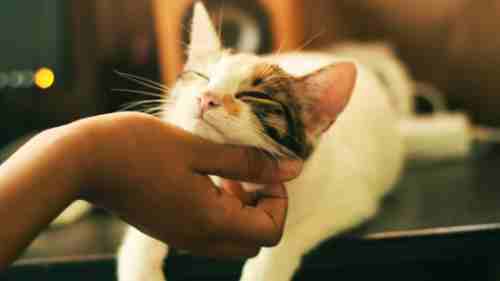As a proud pet parent, you’re aware that the responsibility for the health and wellbeing of your cat is in your control. You’ve studied the most nutritious foods carefully laid out, selected the most suitable litterbox and cat litter, and you’ve bought the most interactive pet toys and cat trees which you can afford. You might be pleased that you’re an expert when it comes to pet-parenting.
Your following and possibly the essential job is to ensure you’re looking after your cat’s wellbeing in conjunction with a respected veterinarian, not just during times of panic or emergency and as a preventive method to ensure your cat’s wellbeing.
The process of going to the vet is traumatizing throughout the entire process. It can be a challenging experience for your precious cat to face the bizarre sights, smells and unpredictability that accompany a trip to the vet. It’s not just the drive there with the hissing and howling as well as the smell and sound of the other animals in the veterinarian’s clinic.
ADULT CATS AND WELLNESS CHECKS
Like humans, cats need to see a vet every year, even if they appear well. Cats are very stoic, and your veterinarian must keep an eye on your pet for any changes that may not be significant to untrained eyes! Regular vet visits wellness check-ups, also known as wellness check-ups, are a great way to prevent potentially serious illnesses. Certain vaccines have to be “boosters” every few years to keep them effective. Wellness visits are also the ideal opportunity to talk to your vet about concerns your dog might be experiencing. It could be a behavioral issue of nature or due to aging or diet. The majority of American pet owners are overweight. Every year, having a vet visit is a sure way not to turn off your cat’s gradual ballooning.
Baby Kittens

If you’re an owner with pride in a brand-new kitten or kitten, be sure to make the appointment in as little time as it is possible. This first appointment will provide you with an opportunity to discuss the plans for your pet’s care with a licensed veterinarian. When your pet is older or less, the veterinarian might recommend regular visits up to 5 months of age.
Senior Cat Vet Visits
You’ll likely begin going to the vet more than once every year once your cat is between 8 and 10 years old, which is the age-related stage, Wheeler says.
Although you’ll need to report any changes in behavior to your veterinarian regardless of the cat’s age, that discussion becomes more crucial when your cat enters his senior years, if your cat is drinking more water than it typically does, for instance, it could be a sign of more significant issues, such as kidney problems or diabetes Wheeler suggests.
It’s hoped that visiting the vet regularly during the span of your cat’s lifetime will ensure that these visits are as relaxing as you can. It’s another reason having a vet that you feel comfortable with could yield dividends, Wheeler says. They’ll be familiar with the cat’s needs and know whether something’s wrong.
This is the drawback of clinics that only offer vaccines or low-cost spay-neuter clinics. They may not be able to spot any other health issues your cat may be suffering from.
Preparing For Changes
If you’re moving or are expecting to make a significant life change within the next few months, consult your vet to determine what your cat may require. For instance, if you move to a place more exposed to outdoor elements and the elements, they might need additional vaccinations. Suppose you’ve recently relocated with your cat and have noticed that they’re behaving strangely after the move. In that case, a post-move examination will determine if they’re suffering from anxiety or they’re physically ill.
If you’re looking for an accredited medical facility for your furry pet, Feline Medical Clinic is waiting to offer the top quality medical care they require.